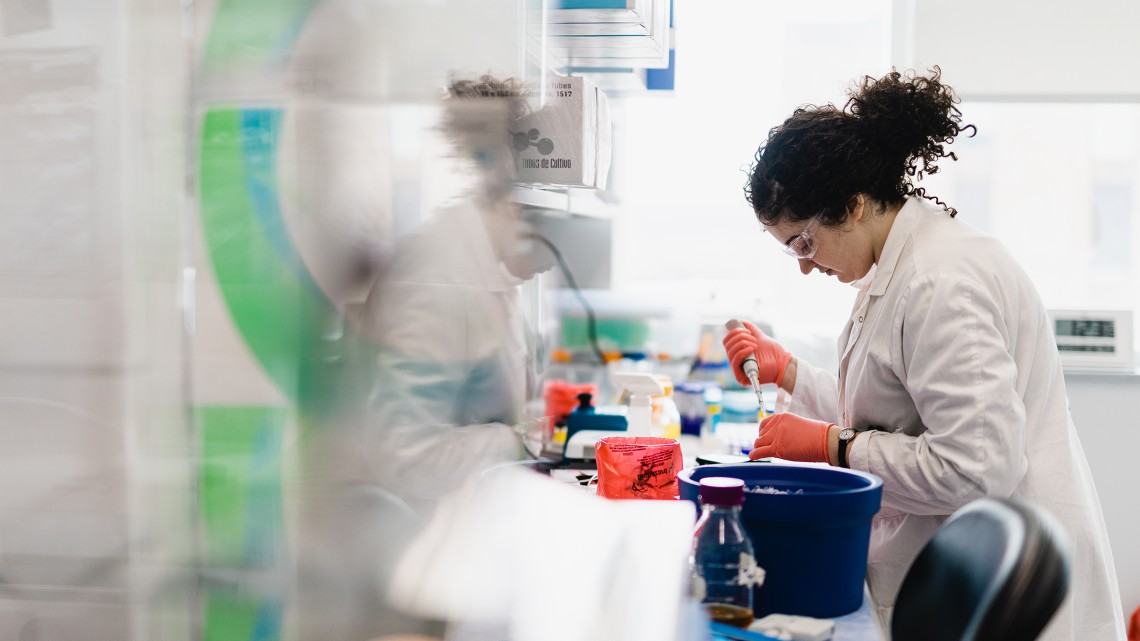
Hannah Zurier, then a graduate student, works in professor Julie Goddard's food science lab.
News directly from Cornell's colleges and centers
Engineering enzymes to break down microplastics in sewage and wastewater
By Krisy Gashler
There are over 5 billion tons of plastic waste accumulated across the planet, much of which are microplastics that may harm human health and pose a long-term threat to agricultural productivity and food security. The gargantuan task of cleaning up this pollution could be aided by a tiny protein: a specialized enzyme designed to break down plastics into simple components that natural bacteria in the environment can use as a food source.
Julie Goddard, professor of food science, and her research team are engineering a unique enzyme that targets polyethylene terephthalate (PET), a common plastic used in packaging and textiles. Her lab has successfully engineered a new enzyme capable of breaking down plastic in the complex conditions found in sewage sludge, and she envisions a system in which these enzymes could someday help reduce microplastics in treated wastewater. Microorganisms are regularly used in wastewater treatment. This work was inspired by former graduate student Hannah Zurier, Ph.D. ’22, now a postdoctoral research scientist at Columbia University, and continues with doctoral candidate Sonia Su, Goddard said.
Media Contact
Get Cornell news delivered right to your inbox.
Subscribe
